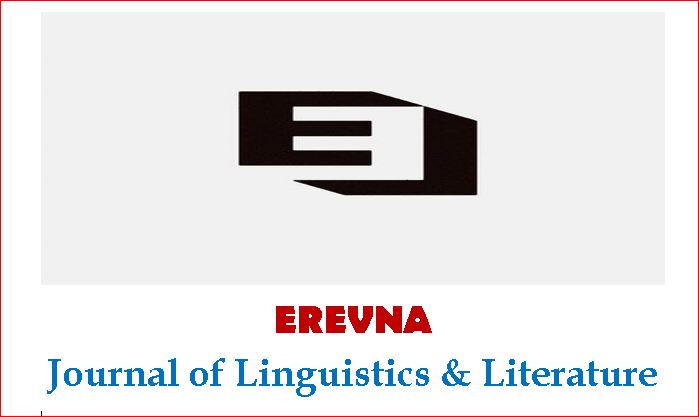Pragmatic and Narrative Skills of Urdu-Speaking Preschool Children
DOI:
https://doi.org/10.1234/ejll.v7i1.279Abstract
Communication serves to be the sole foundation of human interaction. Pragmatics is the aspect of language that grasps the helpful utilization of language in social settings. Importantly, when past events are discussed it leads to an important aspect of social interaction, whereas through narratives, children improve their pragmatic competence by following specific social and cultural rules. Assessing pragmatic and narrative skills is an important aspect of early literacy. The objectives of the study are to assess the pragmatic and narrative skills of Urdu-speaking preschool children. It is a descriptive cross-sectional survey. The pragmatic and Narrative skill instrument (PNSI) Urdu version developed by Qadeer (2019) has been used to assess the pragmatic and narrative skills of children. The total sample consisted of (N=40 ) children, the sample was further divided into two groups. Group I included children from the age range of 4 years to 4 years and 11 months (n=20) and group II included children from the age range 5 years to 5 years and 11 months (n=20) respectively. The sample included both boys and girls and Non non-probability purposive sampling was used in the study. Results showed that children between the ages of 4 years to 4 years and 11 months did not perform well in narrative skills. Still, they were able to maintain the topic, initiate conversation, and end the topic properly. In the other group, children between the ages of 5 years and 5 years 11 months were unable to narrate stories including beginning, middle, and end. According to this study, a variety of practices and activities that support language comprehension and application in social and practical contexts can help young children improve their pragmatic and narrative skills.
References
References
Beck, R. J., & Clarke-Stewart, K. A. (1998). Improving 5-year-olds' narrative recall and comprehension. Journal of Applied Developmental Psychology, 19(4), 543-569. doi.org/10.1016/s0193-3973(99)80055-0
Berman, R. (2009). Language development in narrative contexts. In E. Bavin (Ed.), Cambridge handbook of child language, (pp. 354-375). Cambridge: Cambridge University Press.
Cekaite, A. (2013). Child pragmatics development. Encyclopaedia of applied linguistics. Blackwell. doi: 10, 9781405198431.
Fivush, R., Haden, C. A., & Reese, E. (2006). Elaborating on elaborations: Role of maternal reminiscing style in cognitive and socioemotional development. Child Development, 77(6), 1568-1588.
Freed, J., Adams, C., & Lockton, E. (2015). Literacy skills in primary school-aged children with pragmatic language impairment: A comparison with children with specific language impairment. International Journal of language & Communication Disorders, 1-14.
Glennen, S. L. (2007). Predicting language outcomes for internationally adopted children. Journal of Speech, Language, and Hearing Research, 50(2), 529-548.
Hamdani, S. Z., Arshad, T., Tarar, S. A., & Kausar, R. (2019). Personal narrative skills of Urdu speaking preschoolers. Narrative Inquiry, 29(1), 50-81.
Jose, D. (2014). Pragmatic abilities of children with hearing impairment using cochlear implants (Unpublished Doctoral Dissertation)
Marasco, K., O'Rourke, C., Riddle, L., Sepka, L., & Chairperson, V. W. (2004). Pragmatic Language Assessment Guidelines A Best Practice Document. Early Childhood Intervention Council of Monroe County, 2-8.
Matthews, D., Biney, H., & Abbot-Smith, K. (2018). Individual differences in children‘s pragmatic ability: A review of associations with formal language, social cognition, and executive functions. Language Learning and Development, 14(3), 186-223.
McCabe, A., & Rollins, P. R. (1994). Assessment of preschool narrative skills. American Journal of Speech-Language Pathology, 3(1), 45-56.
McTear, M. (1985). Children’s conversations. New York, NY: Blackwell.
Pearson, B. Z., & deVilliers, P. A. (2003). Language acquisition: Discourse, narrative and pragmatics. Disertasi. USA: Department of Communication Disorders.
Peters, K. (2012). Hierarchy of social/pragmatic skills as related to the development of executive function. Retrieved from https://nyspta.org/wp-content/uploads/2017/08/Conv17-305-Executive-Functions-Hierarchy-Handout-Peters.pdf
Polyani, L. (1989). Telling the American story: A structural and cultural analysis of conversational storytelling. Cambridge, MA: MIT Press.
Bashir et al.
Erevna: Journal of Linguistics & Literature Volume 7 Issue 1 13
Wanska, S. K., Pohlman, J. C., & Bedrosian, J. L. (1989). Topic maintenance in preschoolers' conversation in three play situations. Early Childhood Research Quarterly, 4(3), 393-402.
Wetherell, D., Botting, N., & Conti-Ramsden, G. (2007). Narrative skills in adolescents with a history of SLI in relation to non-verbal IQ scores. Child Language Teaching and Therapy, 23(1), 95-113.
Citation of this paper
Bashir, N., Rauf, N. K., & Qadeer, A. (2023). Pragmatic and narrative skills of Urdu-speaking preschool children. Erevna: Journal of Linguistics and Literature, 7(1), 1-13.





